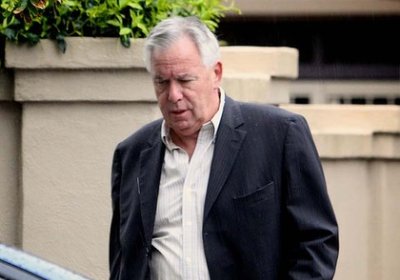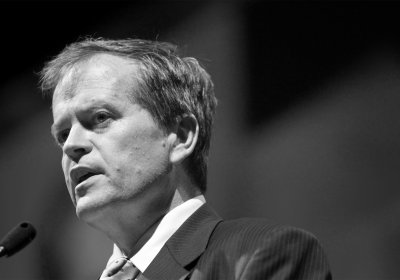Across Africa, western Asia and Latin America in the 1980s, the growth of per capita GDP was brought to a halt. This was not a recession, it was a severe depression. And its cause was reckless lending by banks in the ’70s.
John Rainford
Institutional corruption and lack of governance are serious issues requiring forensic and transparent public examination both in Australia and throughout the rich world.
The global economy has been stagnant since 2008, thanks to unregulated financial derivative markets estimated at the time at one quadrillion (one million billion) US dollars. Betting on interest rates and foreign exchange rates accounted for more than half of this amount.
More than a decade ago, BHP Billiton demerged its steelmaking facilities from its then highly profitable minerals and energy division.
The two steel plants in Port Kembla and Whyalla, which were formerly part of an integrated company that produced the iron ore and the coking coal for steelmaking, became stand-alone steelmakers at a time when China became a serious competitive threat.
Its Port Kembla and Whyalla operations were also separated from each other, becoming BlueScope in Port Kembla and One Steel (now Arrium) in Whyalla.
Opposition leader Bill Shorten’s persistent response to media questions about allegations raised in the unions’ Royal Commission concerning his former union, the Australian Workers Union (AWU), has been to refuse to provide a “running commentary”.
After being requested by the commission to appear before it last week, he is now reported as saying: “I welcome the opportunity to talk about my 21-year record of standing up for workers”.
Hundreds of environmental activists blocked a port terminal in Seattle on May 16 to protest against Royal Dutch Shell’s proposed drilling in the Arctic. Shell is set to carry out more environmentally irresponsible deep-water drilling as a result of their planned $US74 billion takeover of rival company BG.
BG is a British multinational with several deep-water drilling projects around the globe. In 2008, it paid $US3.4 billion for Curtis LNG in Queensland and now exports coal seam gas (CSG) to Asia from Gladstone.
There was a time when an Australian Council of Trade Union congress would be covered by a media pack the size of the parliamentary press gallery. But with private sector union membership languishing at just 12% of the workforce, these days are long gone. Events during the recently held May triennial congress highlighted some of the reasons for organised labour’s demise.
During a week in which the issue of gay marriage was being canvassed in the national parliament, the congress was silent on the matter, largely due to the opposition of ACTU senior vice-president Joe de Bruyn.
The May 2015 budget was framed by the Abbott government with one issue in mind — winning the next federal election. Although there are some members of the Coalition keen on an early election, it seems unlikely to be called until sometime next year.
In January this year, the Prime Minister Tony Abbott drew attention to the “unfolding tragedy” of violence against women and vowed to put the issue of what he misleadingly calls “domestic violence” on the national agenda.
Historically, the strength of unionism in Australia rested on the three tenets of what came to be called “labourism” — white Australia, tariff protection and compulsory arbitration. As these policy settings were wound back, union membership fell into gradual and then steep decline.
From the late-1980s, the union movement's chief response was to reduce the number of unions. This was advanced on the logic that a small number of large unions would have access to greater resources to direct towards retention and recruitment of members.
The head of the Business Council of Australia (BCA), Catherine Livingstone, has called for a national “conversation” about what the federal government and the business community euphemistically call “economic reform”.
Ever in thrall to trickle-down economics, they manage to talk in “doublespeak”, a close relative of the doublethink that George Orwell wrote about in his novel Nineteen Eighty-Four.
Lines of grey muttering faces, masked with fear,
They leave their trenches, going over the top,
While time ticks blank and busy on their wrists,
And hope, with furtive eyes and grasping fists,
Flounders in mud. O Jesus, make it stop!
— Siegfried Sassoon.
Implausible as it might seem, it was the violent protest of a group of Bosnian high school students that sparked World War I.
In December last year, minister for employment Eric Abetz and Treasurer Joe Hockey announced the terms of reference for an inquiry into Australia’s workplace relations framework by the Productivity Commission that was established by John Howard’s Coalition government in 1998.
In a paper released in January, the Productivity Commission indicated that what was up for grabs were the minimum wage, penalty rates, unfair dismissal laws and the role of unions in collective bargaining.
- Previous page
- Page 4
- Next page











